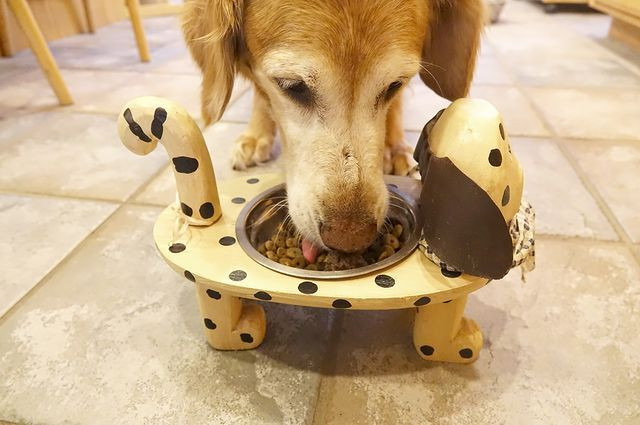Dogs, Cats Add Greenhouse Gases To Atmosphere By Eating Meat

Human dietary practices have a serious effect on the environment, but an individual’s impact increases even more if there is a pet dog or cat in the picture — our furry friends eat meat from a production cycle that adds greenhouse gases to the atmosphere.
Animal production uses up land and water and relies on fossil fuels, among other environmental impacts of the meat industry like erosion. According to a new study in the journal PLOS One, American pet dogs and cats account for between a quarter and 30 percent of those impacts through their diets, including when they digest it and poop it out. The meat they eat is linked to the equivalent of about 64 million tons of carbon dioxide being released into the air.
Read: Dogs Demand Equal Treatment Because They Are Good Boys
What else could release that amount of greenhouse gas? About 13.6 million cars driving around for an entire year, the University of California, Los Angeles, said in a statement.
“Dietary choices have considerable impacts on environmental sustainability,” the study says. “Compared to a plant-based diet, a meat-based diet requires more energy, land, and water and has greater environmental consequences in terms of erosion, pesticides, and waste.”
The research involved using existing numbers on the environmental impact of the meat industry and pinpointing pets’ share of the load based on how much they eat and the meat content of that, as compared to human diets.
While some people might cut meat out of their diets to reduce their environmental footprint, even as meat demand increases around the world, going vegetarian is not a healthy choice for dogs and cats.
And the problem will likely only grow: “The number of dog- and cat-owning households is increasing in the U.S., and at the same time there is an increasing trend in the ‘humanization’ of pets and pet products,” according to the study. “As a possible consequence, there is a trend toward increasing meat quantity and quality in pet foods, which results in further increases in consumption of animal products by pets.”
Pet numbers are also increasing around the world.
“As pet ownership increases in some developing countries, especially China, and trends continue in pet food toward higher content and quality of meat, globally, pet ownership will compound the environmental impacts of human dietary choices,” the study explained.
According to the research paper, choosing pets with lower-impact diets would help, as would making meat production more environmentally friendly.
Read: Do Dogs and Cats Need Eye Protection for the Solar Eclipse?
“I like dogs and cats, and I’m definitely not recommending that people get rid of their pets,” researcher Gregory Okin, a geography professor, said in the UCLA statement. “But I do think we should consider all the impacts that pets have so we can have an honest conversation about them. Pets have many benefits, but also a huge environmental impact.”
A small solution might be to feed dogs and cats more of the meat that they can eat but humans can’t, and ease up on the fancy stuff.
“A dog doesn’t need to eat steak,” Okin said. “A dog can eat things a human sincerely can’t. So what if we could turn some of that pet food into people chow?”
© Copyright IBTimes 2025. All rights reserved.





















